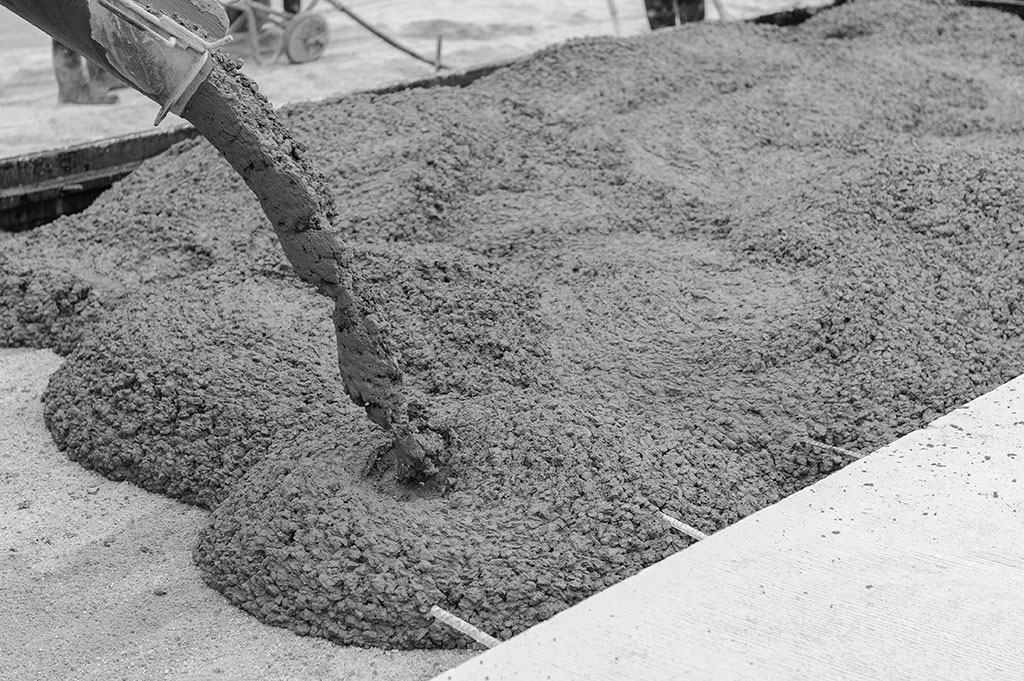Comprehensive Overview to Concrete: From Setup to Finishing Touches
Comprehensive Overview to Concrete: From Setup to Finishing Touches
Blog Article
Unveiling the Eco-Friendly Advantages of Making Use Of Recycled Concrete in Lasting Building Practices
In the realm of sustainable building and construction techniques, the utilization of recycled concrete stands as a pivotal yet typically underestimated resource. Past its standard applications, recycled concrete deals a myriad of green advantages that prolong far beyond the boundaries of conventional building and construction materials.
Environmental Benefits
By integrating recycled concrete into building and construction practices, there is a substantial reduction in the demand for new raw products, leading to preservation of all-natural resources. Additionally, the use of recycled concrete decreases the amount of waste being sent out to garbage dumps, therefore minimizing ecological air pollution and reducing the strain on garbage dump abilities (Concrete).

Additionally, the production of standard concrete is a significant source of carbon discharges as a result of the energy-intensive process of cement production. On the other hand, recycled concrete has a lower carbon impact as it minimizes the demand for new concrete manufacturing. This decrease in carbon exhausts contributes to mitigating climate adjustment and sustains sustainable building and construction practices. Overall, the environmental advantages of using recycled concrete are significant and play a crucial role in advertising environment-friendly building methods.
Cost-Efficiency
Attaining cost-efficiency is a critical consideration when assessing the application of recycled concrete in building tasks. One of the key advantages of utilizing recycled concrete is its cost-effectiveness compared to traditional concrete.
Moreover, making use of recycled concrete can bring about cost savings in land fill expenses by drawing away concrete waste from disposal websites. This not only minimizes the environmental impact however additionally removes the expenses connected with waste removal. Furthermore, the longevity and efficiency of recycled concrete are comparable to conventional concrete, guaranteeing that price financial savings do not endanger the high quality of the construction.
Toughness and Strength
Considering the significant cost-efficiency benefits of making use of recycled concrete, it is important to analyze its sturdiness and toughness in building applications. Recycled concrete deals comparable, if not premium, toughness and strength residential or commercial properties to standard concrete. Via advancements in handling strategies and quality control, recycled concrete can fulfill or exceed the performance requirements of standard concrete. The process of reusing concrete includes crushing, arranging, and screening old concrete to generate accumulations that can be made use of in brand-new building and construction jobs. These recycled aggregates are capable of supplying satisfactory compressive strength, longevity, my blog and lasting efficiency.

Waste Reduction
Effective waste reduction practices play an important role in the sustainable application of resources within the building market. When it involves using recycled concrete, waste reduction is a vital benefit that adds substantially to ecological conservation. Typical building approaches frequently generate considerable amounts of waste, particularly in the form of concrete rubble from demolition sites. By including recycled concrete right into building jobs, this waste is repurposed and diverted from land fills, reducing the overall environmental impact of building activities.
Recycled concrete not only assists in minimizing the quantity of waste that finishes up in land fills however likewise preserves natural deposits by reducing the need for brand-new accumulated materials. This process of waste reduction promotes a round economy within the building field, where products are reused and recycled to develop an extra lasting sector. Furthermore, making use of recycled concrete can bring about set you back financial savings for construction tasks, as it is typically much more economical than sourcing and carrying new materials. To conclude, waste reduction with the usage of recycled concrete is an important component of sustainable building and construction practices that profits both the setting and the construction sector in its entirety.
Energy Conservation
Power preservation is a crucial element of sustainable building and construction practices, aiming to minimize the general power intake connected with structure procedures and recommended you read products manufacturing. Considerable energy savings are accomplished compared to conventional concrete manufacturing when it comes to making use of recycled concrete in building and construction. The process of generating recycled concrete includes crushing and recycling existing concrete materials, which takes in less power than mining, processing, and carrying raw products for brand-new concrete manufacturing. Furthermore, the usage of recycled concrete can assist decrease the demand for virgin aggregate, additional decreasing the energy-intensive extraction and handling of natural deposits.
Verdict
To conclude, the application of recycled concrete in lasting building and construction methods supplies various environmental benefits, cost-efficiency, resilience, strength, waste reduction, and energy preservation. By integrating recycled concrete into construction jobs, we can add to a much more sustainable and ecologically friendly future. It is important for the building sector to prioritize using recycled products to help in reducing the ecological influence of building tasks.
One of the essential advantages of using recycled concrete is its cost-effectiveness compared to conventional concrete.In addition, the use of recycled concrete can lead to savings in land fill costs by drawing away concrete waste from disposal websites. The sturdiness and performance of recycled concrete are comparable to standard concrete, making certain that cost financial savings do not jeopardize the high quality of the building.
:max_bytes(150000):strip_icc()/pouring-concrete-slab-5025127_Hero-347297eb7a1f436691f9a1f22b6e1833.jpg)
Report this page